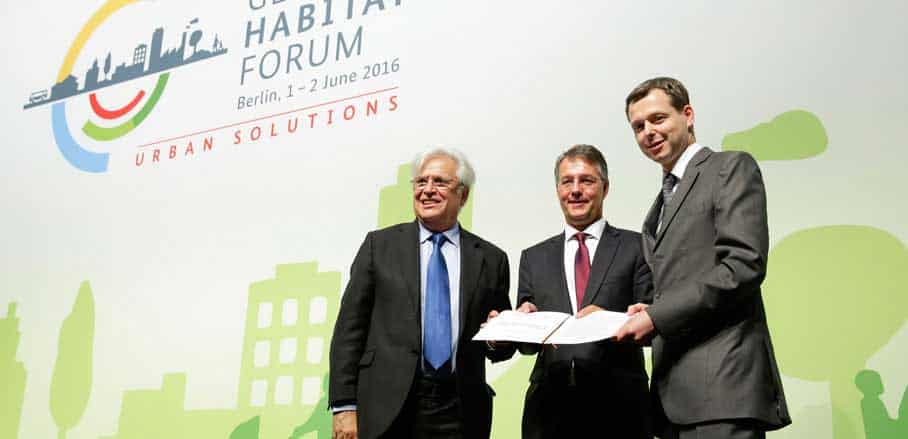Shortcut: The Berlin Recommendations for the Cities of Tomorrow
In the course of the German Habitat Forum taking place on 1 and 2 June 2016 in Berlin the so called “Berlin Recommendations” were developed and ultimately passed. The manifest drafted by more than 1000 participants from 74 countries does not only reflect a common vision of the cities of tomorrow, but also points out the development areas central to realizing this vision. It thus specifically addresses international agendas like the 2030 Agenda and the New Urban Agenda.
The recommendations in short:
Vision: For cities to become the cities of tomorrow, it is necessary …
- To guarantee the quality of life for all, meaning that inclusivity, cultural diversity, security and justice should be enhanced;
- To contribute to securing the prosperity of all people through socially and ecologically sustainable economies, through policies promoting social security and just employment, and through the responsible and demand-oriented promotion of new technologies and innovations.
- To lead the way to a sustainable low-emission world through extensive measures protecting the environment, the climate and resources as well as the strengthening of urban resilience.
- To strengthen the interrelation of urban and rural areas to facilitate food security, rural development and a just distribution of resources.
To put this vision into practice, it is necessary to …
- Enable cities as development actors to achieve the objective of agendas like the Agenda 2030, the New Urban Agenda and the Paris Agreement (COP21);
- Find transformative solutions for sustainable urban development;
- Strengthen conducive and context-specific institutional, legal and financial frameworks for cities;
- Establish possibilities to engage and network on all levels of participatory multi-level partnerships between all relevant actors in planning-and decision-making processes for the implementation of international agendas as well as national policies.
- Focus on the development of inclusive and political communication- and learning processes of policy makers and local practitioners in the follow-up of the New Urban Agenda;
- Strengthen the voice of cities in the global urban governance context
The recommendations are available for download in four languages:
DE: Berliner Empfehlungen für die Städte von morgen
EN: Berlin Recommendations for the Cities of Tomorrow
